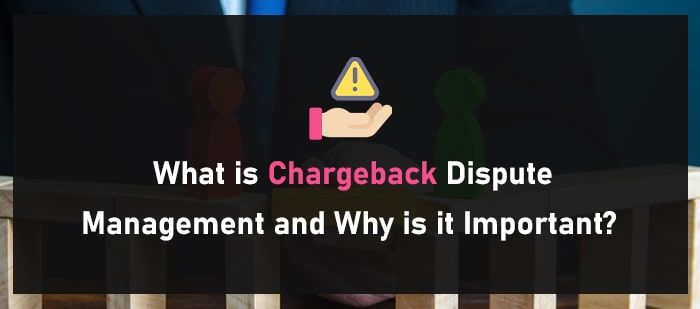
An Introduction to Chargebacks
Chargebacks are initiated when a customer challenges a transaction, causing their bank to reverse the payment to the merchant. This system was originally intended to shield consumers from fraudulent activities, incorrect billings, or defective products. Nonetheless, chargebacks can sometimes be exploited, leading to undue financial pressure on businesses. The chargeback process involves several stakeholders, including the customer, merchant, the customer’s bank, and the card issuer, making it a multifaceted issue.
For merchants, chargebacks are not just a loss of sales revenue; they also bring additional costs. These costs can come in the form of chargeback fees, potential fines from payment processors, and the administrative burden of handling these disputes. Frequent chargebacks may also draw extra scrutiny from financial institutions, possibly affecting a merchant’s standing and future transactions.
Understanding the complexities of the chargeback process is crucial for businesses. It helps in recognizing the reasons behind chargebacks, whether they are due to genuine issues like fraud and errors or instances of friendly fraud, where customers dispute legitimate transactions. This foundational knowledge is essential for developing strategies to manage and mitigate the adverse effects of chargebacks.
Some Related Blogs
- How to Implement a Robust Fraud Prevention System
- Impact of AI in Fraud Prevention for Online Retailers
- Fraud Prevention Best Practices Every Merchant Should Know
- Why Fraud Prevention is Critical for E-commerce Merchants
Grasping Chargeback Dispute Management
Chargeback Dispute Management is a structured approach to handle and contest chargebacks. This process involves reviewing each chargeback claim, gathering evidence, and presenting a case to the issuing bank to prove the transaction was legitimate. By implementing effective dispute management, businesses can recover lost revenue and reduce the impact of chargebacks.
The key components of Chargeback Dispute Management include:
- Detection and Response: Quickly identifying chargebacks and responding promptly is critical. A timely response can improve the chances of a successful dispute resolution.
- Evidence Collection: Gathering all relevant documentation and information related to the transaction is crucial. This may include receipts, shipping details, and communication records with the customer.
- Representation: Crafting a strong case to present to the bank involves organizing the evidence and clearly articulating why the chargeback should be reversed.
- Monitoring and Analysis: Keeping track of chargeback trends can help businesses understand common issues and improve their processes to prevent future occurrences.
The Significance of Efficient Dispute Management
Efficient Chargeback Dispute Management is a cornerstone for maintaining financial stability within a business. Successfully navigating disputes can mitigate the economic impact that chargebacks have, including the loss of sales revenue and additional fees. By contesting chargebacks effectively, businesses can recover funds that would otherwise be lost, thereby enhancing profitability.
Beyond financial recovery, proficient dispute management is instrumental in preserving customer relationships. Properly addressing disputes demonstrates a commitment to customer satisfaction and fairness. This proactive approach can enhance trust and loyalty, reassuring customers that their concerns are taken seriously.
![]()
Email us anytime!
Email customer service 24/7
![]()
Call us anytime!
Reach customer care 24/7 at +1 (888) 901-8653
Managing chargebacks efficiently also shields a business from potential reputational harm. High chargeback ratios can lead to increased scrutiny from payment processors and could result in higher fees or the termination of merchant accounts. Maintaining low chargeback rates helps businesses avoid these risks and ensures they retain favorable terms with financial institutions.
Adopting best practices in dispute management involves maintaining meticulous transaction records and training staff to identify and prevent potential chargebacks. Employing advanced technology solutions, such as analytics tools and automated systems, can further streamline the process, enabling quicker detection, evidence collection, and response.
Efficient management isn’t solely reactive but also preventative. By analyzing chargeback trends, businesses can identify common issues and make necessary adjustments to their operations. This proactive stance helps in reducing the occurrence of chargebacks in the first place, safeguarding the business from future financial strains.
In summary, effective dispute management extends beyond immediate financial benefits. It reinforces customer trust, protects the business’s reputation, and ensures long-term financial health.
Tactics for Effective Dispute Management
Successful Chargeback Dispute Management relies on a combination of proactive measures and responsive strategies. One of the first steps businesses can take is to ensure the availability of detailed and accurate transaction records. This includes retaining receipts, shipping information, and any communication with the customer. These records will serve as crucial evidence when contesting chargebacks.
Training staff is another critical tactic. Employees should be well-versed in recognizing potential red flags that could lead to chargebacks. This includes verifying customer identities, ensuring that product descriptions are clear and accurate, and maintaining open lines of communication throughout the transaction process. By educating staff on these best practices, businesses can minimize errors that might trigger disputes.
Leveraging technology can significantly enhance the effectiveness of dispute management. Advanced analytics tools are particularly useful for identifying patterns in chargeback claims, which can reveal underlying issues in the sales process. For example, if a particular product or service frequently leads to disputes, this insight allows the business to make necessary adjustments, whether it’s improving product descriptions or enhancing customer service protocols.
Automated systems also play a vital role in managing chargebacks. These systems can streamline the evidence collection process, ensuring that all relevant documentation is organized and submitted promptly. Automation can also facilitate quicker detection of chargebacks, enabling businesses to respond within the necessary time frames, thereby increasing the likelihood of a successful dispute resolution.
Another effective tactic involves customer communication. Keeping customers informed at every stage of their purchase journey can preempt misunderstandings that might lead to chargebacks. Sending order confirmations, shipping updates, and delivery notifications can reassure customers and provide them with a clear understanding of their transaction. Additionally, offering easy access to customer support can resolve issues before they escalate into formal disputes.
Monitoring chargeback ratios and maintaining compliance with industry standards is also crucial. High chargeback ratios can result in increased scrutiny and fees from payment processors, potentially harming the business’s financial standing. Regularly reviewing these metrics allows businesses to identify trends and take corrective actions to maintain a favorable standing with financial institutions.
Implementing a clear and fair return policy is another tactic to consider. By providing a straightforward process for returns and refunds, businesses can reduce the likelihood of customers resorting to chargebacks. Clearly communicating this policy to customers ensures they understand their options, potentially averting disputes before they arise.
Lastly, collaboration with payment processors and banks can offer additional support in managing chargebacks. These institutions often provide resources and guidance on best practices, as well as tools that can aid in the dispute management process. Building strong relationships with these entities can provide businesses with the additional support they need to navigate chargeback challenges effectively.





